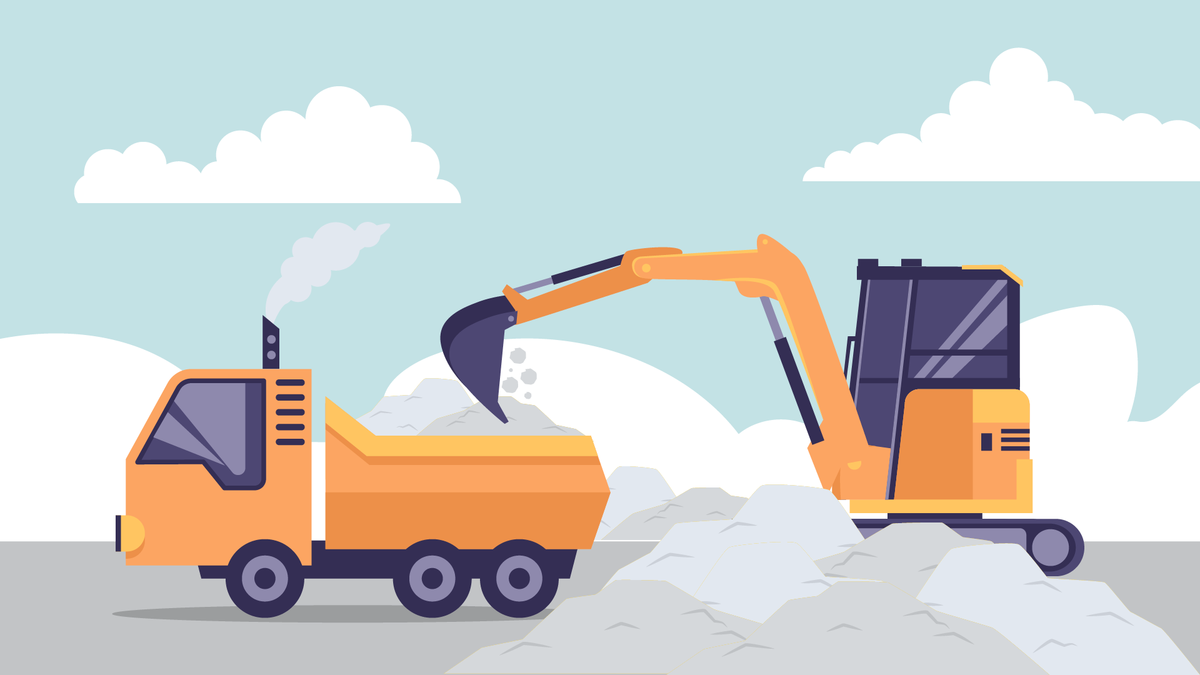
Understanding Excavation Contractor Insurance
Excavation contractors fill an essential role in construction projects, but it can be a high-pressure job – ultimately, the integrity of the project site depends on you. You don’t want to have to worry about accidents when you’re trenching, grading, and compacting, or what could go wrong down the line. That’s why it’s so important to have excavation contractor insurance.
What is excavation business insurance?
Business insurance for excavation contractors helps protect you from financial and legal consequences if anything goes wrong on a job site or with a project. It often isn’t just one type of insurance, although options like business owners policies combine several coverages into one. With comprehensive insurance, you’ll be covered for things like property damage, equipment damage, worker accidents, and personal injury liability. Read on to learn more about what excavation contractor insurance you need and why.
Need A Excavation Insurance Quote?
Get started today online or by scheduling a time for us to call you!
Why Excavation Contractors Need Insurance
The nature of the job means you’ll be working in potentially dangerous areas, using heavy equipment that can cause injury. In addition, as a contractor, you typically won’t be covered under the insurance of the organization that hires you. Contractor insurance can help you in a few ways.
Financial Protection
Working in excavation comes with some unique hazards, like trench cave-ins and machinery damage. Mistakes or accidents can lead to injuries for both your workers and visitors to the worksite. And structural problems could arise months after the work is completed, creating unhappy customers and hazards. All of these scenarios expose you to financial and legal risk that would be covered by excavation business insurance.
State Licensing Requirements
Because it’s a high-risk industry, most states require a certain level of insurance, especially liability insurance, before they’ll provide a construction business license. Having workers compensation insurance is also a requirement in almost all states if the contractor has employees.
Client Requirements
While potential clients should have their own business insurance, they’ll still want you to be covered so they won’t have to pay out of their own pocket in case of mistakes or accidents. Comprehensive insurance can help you improve your reputation and land bigger projects.
Essential Excavation Contractor Insurance
The exact excavation insurance you need depends on your business size, location, and operations, but there are a few types that are always recommended.

Excavation Liability Insurance
General liability for businesses covers you for third-party claims of property damage and personal bodily injury. For instance, if a machine accidentally damages a neighboring property, general liability would cover the repair costs. Or, if a person is injured while visiting a jobsite, it would cover legal fees and compensation. This is the most basic type of excavation contractor insurance that you need to have.
Workers Compensation
Most states require you to have workers compensation insurance if you have at least one employee, and it’s especially important in construction. Construction workers often take on risky situations, and if they’re injured, your business could be on the hook for the bill. For example, if a worker is injured during a trench collapse, workers comp would cover their medical expenses and a portion of their wages while they recover.
Equipment Insurance
Excavators often work with expensive machinery and tools, and a commercial property policy will only cover them if they’re stolen or damaged while in the building listed on the policy – not at a jobsite. That’s what contractor’s tools and equipment insurance is for. If tools or equipment are damaged, lost, or stolen at a jobsite, it covers the cost of replacement or repair. It even covers rented equipment for extra peace of mind.
Commercial Auto Insurance
Most excavation companies have business vehicles they use to transport workers and supplies to job sites. The larger your company, the more vehicles you have – and the more you need commercial auto insurance. It covers medical bills and the cost of property damage if an employee gets in an accident on company time. For example, if a dump truck transporting soil is involved in an accident, this type of excavation contractor insurance can help cover repair costs and medical bills.
Common Claims For Excavation Contractor Insurance
It might seem like you need a lot of different types of insurance, but we know from experience that they’re all necessary. Here are some real-life claims we see.

- On-Site Accidents: One common claim involves bystanders being struck by falling debris. The contractor’s general liability policy would typically cover the associated costs.
- Completed Work Claims: When a contractor finishes a project and the client later discovers foundational issues due to improper excavation, they could file a claim. The contractor’s liability insurance would respond.
- Employee Injuries: Jobsite injuries, like broken bones from machinery accidents, are not uncommon. If an employee suffers an injury, the contractor's workers compensation policy would help cover the cost of the employee's medical treatment and time off work.
- Vehicle-Related Incidents: Excavators often use large vehicles that can cause significant damage. If a company vehicle causes an accident, the commercial auto policy would help cover the damages caused to the other vehicle involved in the accident and medical costs for any injuries.
Common Challenges For Excavation Business Insurance
Many contractors in the construction industry face challenges when looking for insurance, and excavator insurance is no exception.
Limited Insurance Options
Due to the high-risk nature of excavation work, some insurance companies won’t provide coverage. Excavation contractors may need to find an insurer that not only understands their business needs, but can quote and create a personalized, yet comprehensive policy.
High Premiums
Factors like the risky nature of the job, scale of projects, insurance claim history, and location can influence the cost of premiums. For instance, excavation contractors in areas prone to landslides may face higher insurance costs because of the increased risk. We’ll talk about how to get the best rates in the next section.
Inappropriate Exclusions
Excavation contractor insurance needs to cover some uncommon situations that might typically be excluded from a policy. For example, a general liability policy might not cover subsurface claims or pollution liability, which could be problematic if a contractor encounters unforeseen underground hazards. An experienced insurance partner can help make sure you’re covered for everything you need.
Tips For Finding The Best Excavation Insurance
Excavators may face challenges finding the right insurance, but following these tips can help.
Find a specialist
Certain types of excavation work may be trickier to insure – and might not be covered at all by companies that normally would provide insurance. If you do residential pads, deep trenching, or road work, you may need to look for insurance in the specialty market. Working with a broker with experience in this area can help make sure you end up with the best options.
Provide safety training
Workers compensation can end up being an expensive piece of your excavation business insurance, especially if a lot of claims have been made against you. A strong safety program could help prevent accidents, reduce insurance claims, and lower your premiums. For example, regular safety training can help employees understand excavation risks, how to work around heavy equipment, how to properly shore trenches, and so on.
Prepare a resume
New excavation businesses may find it difficult to get lower premiums without a history of coverage and proof that you haven’t had many claims made against you. A detailed resume showing experience, skills, safety certifications, and specialized trainings can help insurers better understand your risk profile and could get you better policy terms.
Carefully read your policy
It’s always important to carefully read insurance policies, especially in construction. Make sure your business is classified correctly and read all exclusions to check if you’re covered for every possible situation. For example, many policies exclude subcontracted work or residential work, which can create coverage gaps for excavators.
The Bottom Line
Excavation contractor insurance is a must-have for any business in this industry. While there are certain things you need to consider, getting the right insurance doesn’t have to be complicated. You just need to find a specialist with experience in the construction industry, like LandesBlosch. We’ve been working with excavation companies and other contractors for decades, and we can help you find the best policy. Contact us today to get started.
About The Author: Austin Landes, CIC
Austin is an experienced Commercial Risk Advisor specializing in property & casualty risk management for religious institutions, real estate, construction, and manufacturing.

